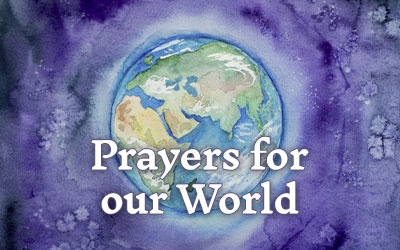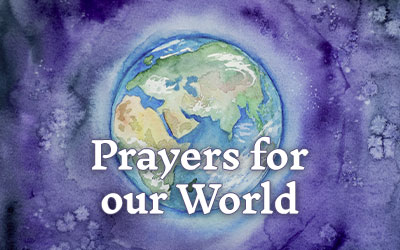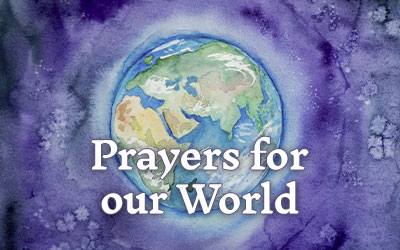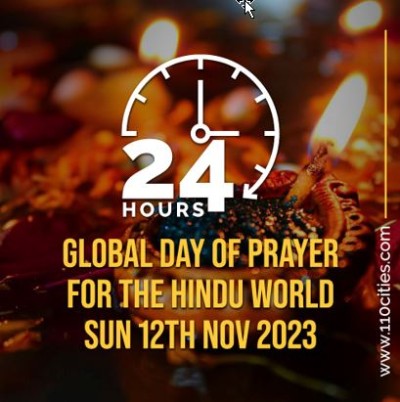In the aftermath of a devastating earthquake in Nepal's Jajarkot district, a rural municipality situated at the epicenter experienced a miraculous escape from human casualties. The earthquake, with a magnitude of 6.4, struck near the Ramidanda village in Barekot Rural Municipality just before midnight on a Friday.
While the earthquake caused massive physical damage to houses and public infrastructure, this particular rural municipality avoided any reported deaths as of Saturday evening, in stark contrast to the 157 lives lost in other parts of the district and neighboring Rukum West. The chairperson of the rural municipality, Bir Bahadur Giri, described the scene as "difficult to believe" given the extent of damage to buildings. Some residents attribute their survival to divine intervention.
Although five people in the municipality sustained injuries, none were reported dead. The district administration office confirmed the absence of casualties in Barekot Rural Municipality despite the earthquake's epicenter being located there.
Experts noted that the epicenter doesn't necessarily experience more physical damage than other locations during earthquakes, but it is indeed rare and almost miraculous for an epicenter to avoid human casualties in such a significant quake. Factors such as the location of the fault line and the strength of buildings contribute to the scale of damage during earthquakes.
More: Hindustan Times | CNBC
Pray: giving thanks for sparing lives in Nepal's earthquake. Your protection is our refuge. (Psalm 46:1)"
Pray: for comfort and strength for those affected by the earthquake. May they find hope in You. (Isaiah 41:10)"
Pray: for the relief agencies and medical staff who are working to bring support and assistance to the areas that have been more seriously affected. (Psalm 121: 1-2)
On October 25, 2023, a tragic incident unfolded in Lewiston, Maine, as a shooter named Robert Card, aged 40, unleashed a violent rampage. The first shooting occurred at Just-In-Time Recreation, a local bowling alley during a youth league event. Card used a semi-automatic rifle with an extended magazine, resulting in the death of seven individuals.
Shortly thereafter, at Schemengees Bar & Grille Restaurant, located 4 miles away, another shooting took place, claiming the lives of eight individuals, with three more succumbing to their injuries later in the hospital. This heart-wrenching event left a total of eighteen people dead and thirteen others injured.
A manhunt for Card began, and his abandoned vehicle was discovered near the Androscoggin River in Lisbon, sparking a widespread search effort with the assistance of federal agencies. An arrest warrant was issued for Card, charging him with eight counts of murder. Police surrounded a house in Bowdoin while executing a search warrant.
The search for Card extended into the river, where dive teams, sonar, and remotely operated underwater vehicles were employed. Eventually, on October 27, Card was found dead near his former workplace, a recycling center in Lisbon, having apparently taken his own life.
This tragic event shook the community, as the victims, ranging from ages 14 to 76, were identified. Card, a former sergeant first class in the United States Army Reserve, left behind a trail of devastation, leaving the community to grapple with grief and loss.
Mass shootings are an ongoing issue in the USA, with 621 people killed, 2,126 injured in 520 separate recorded incidents to date in 2023. The right to bear arms is enshrined in the US Constitution. Gun sales have risen steadily, peaking during the pandemic.
Pray: Father, comfort and strengthen the grieving hearts in Lewiston. Be their refuge and solace. (Psalm 34:18)"
Pray: bring healing to the wounded and peace to the broken community. Let your light shine in the darkness. (Psalm 147:3)"
Pray: for the means to an end of this senseless violence. May your love and grace prevail. (Matthew 5:9)
Readers are invited by our friends at Canberra Declaration, and Love Australia to cover them in prayer as they conduct an important pro-life campaign associated with the Children Born Alive Bill…
This Australian legislation aims to ensure that every baby born alive after a failed abortion is given medical treatment, including life-saving care.
Unbelievably, right now there is no national law protecting babies born after a failed abortion. They have no legal rights, and in some cases, are simply left to die with no medical care.
The Children Born Alive Bill seeks to implement this desperately needed protection on a national basis for these precious little ones.
The Senate committee (that was formed to look into the bill) recently released its findings. We were incredibly disappointed, but not surprised that it simply endorsed many of the claims made by the pro-abortion industry and failed to properly engage the serious issues brought by the pro-life groups.
You can read a summary of the Senate committee's poor findings in the short Daily Declaration article here.
With your help, this bill will not go away! By having the bill debated in the Senate, it will continue to reveal the national scandal that this country treats live babies, born after a failed abortion, as unworthy of the same human rights and medical care as any other baby.
Canberra Declaration Senate submission is here
Watch and pray with this video
Pray: We urge you to pray particularly for these two senators: Simon Birmingham's and Sen. Bridget McKenzie
Pray: for all our senators and parliamentarians. The spiritual battle over those in leadership is real, which is why we are commanded to pray for our leaders (1 Tim 2:1–4).
Pray: for a miracle – that this campaign achieves the goal to get the bill debated and voted on in the Senate!
We must continue to speak up for life as long as it takes victory to be achieved. The march for life is a marathon, not a sprint.
Thank you for your prayers and actions!
Samuel Hartwich & Warwick Marsh
Canberra Declaration / Love Australia
We recently mobilised worldwide prayer for 21 days, as a response to the war between Israel and Hamas.
12:11 Prayer invited people to pause to pray in unity for Israel at 12 Noon, for 11 Minutes each day.
IN view of the continuing crisis, we are continuing with this 12:11 Prayer until peace returns…
Do join us
See www.linktr.ee/ipcprayer for updated prayer pointers
Also, see Global Esther Fast for resources / prayer pointers
Sunday 12th November 2023 (Starts 8am EST)
Millions across the world are already taking part in the current 18 Days of Prayer for the Hindu world using the prayer Guides:
Adult Prayer Guide | Childrens’ Prayer Guide
We invite you to join us as we come together online for a 24-hour prayer meeting (during Diwali), covering key cities and regions of the Hindu world.
This will be an opportunity to pray together, exalting Jesus Christ as King throughout the Hindu world, asking the Lord of the Harvest to send forth laborers to every unreached people group in these cities and nations!
Do join us for an hour (or more) of this 24-hours, to pray for Gospel movements throughout the Hindu world and Asia!
Click Link to join us Online! (info below)
Zoom ID – 84602907844 Passcode 32223
We want to pray that as Hindu families celebrate during the Diwali festival, they will encounter the Lord Jesus Christ.
See the schedule of cities we will focus on each hour, on this itinerary:
 Prayer Points for Unreached Peoples and Cities
Prayer Points for Unreached Peoples and Cities
- Pray for Jesus Christ to be exalted in each city. Pray for his name be revealed, received and revered amongst every people, tribe and tongue in each city. Pray for God’s Kingdom to come and his will to be done in each city! (Matthew 6:9-10, Malachi 1:11, Hab. 2:14, Psalm 22:27)
- Pray to the Lord of the Harvest to send forth laborers to proclaim the Gospel of the Kingdom with demonstrations of Power and Love!
- Pray for Christ-exalting, Disciple-making Churches to be planted throughout each city!
- Pray for Dreams and Visions to be given to those in the cities who are far from God
- Pray for the Bible to be translated into the heart language of every people group in each city. 2 Thess 3:1
- Pray that the Lamb who was slain would receive his due reward in the nations! (Rev 5:9,12).
2 Billion Children – is a campaign conceived by IPC’s Senior Advisor and Exec Member, Tom Victor.
The vision to see the 2 billion children across our world empowered to share the message of God’s love with their friends and families.
Tom has teamed up with Ann Low and Anja Letsatsi, who are raising awareness for this exciting project.
We would like to bring you Tom’s latest newsletter that tells the story of 2BC!
The article title is aptly – ‘Children Changing the World!’
Download the 2BC Story Newsletter HERE!
More: www.2bc.world/
7 WEEKS - 2023
Praying: for the Persecuted Church
13 – 19 November 2023
‘Dying Daily – The Suffering Church’
Watch Daniel Brink’s video which outlines the vision of ‘7 WEEKS – 2023’ HERE
IPC Colleague and friend, Daniel Brinks is Director of Jericho Walls International Prayer Network, based in Cape Town, South Africa.
Many of our partner intercessors have been taking part in their 7 WEEKS - 2023 Initiative - mobilising prayer through WhatsApp groups. It's not too late to join the final week of 2023, praying for the Persecuted Church.
Isaiah 62:6-7: ‘I have posted watchmen on your walls, Jerusalem; they will never be silent day or night. You who call on the Lord, give yourselves no rest, and give him no rest till he establishes Jerusalem and makes her the praise of the earth.’
How to participate:
- Download and read the briefing in the special Prayer Guide, with daily guidelines focusing on the Persecuted Church
- Consider taking a daily timeslot on the hour to pray through and agree with the prayer focus provided.
- Join an existing 24-7 Prayer Group or start your own group with friends/family. (See link below)
How to create your own 24-7 prayer group:
Download the Guide
Register your group:
Complete the form HERE, or send your details via WhatsApp to +27833216909.
May our prayers for the persecuted church bring testimonies of God’s interventions. May He save for His sake and for the sake of the godly generations that have gone before us!
The day must come when ‘…all the ends of the world shall remember and turn to the Lord, and all the families of the nations shall worship before You.’ Psalm 22:27.
Because He is worthy…
Daniël Brink - Managing Director
Jericho Walls International Prayer Network
Awakening a Jesus Generation
We're gathering 3,500 Gen Z individuals on November 27 to 29, 2023 for a JREV CONVERGENZ at the Ynares Sports Arena, Pasig City, Metro Manila, Philippines.
"You were not born to just go to church. You were born to shift the destiny of the Philippines." - Ps Jerome Ocampo
NOVEMBER 27-29, 2023
JREV ConverGenz 2023
It will be three days of believing with audacious faith to move a whole generation for Jesus, and of impartation to young emerging and persevering leaders, movers, and influencers who are Millenials and GenZs.
Speakers:
Dr. Leif Hetland - Founder and President of Global Mission Awareness
Bishop Dan Balais - National Chairman of the Intercessors for the Philippines
Dr. Jason Hubbard - Director of International Prayer Connect
Ptr. Paul Yadao - Senior Pastor of Destiny Ministries International
Ptr. Jerome Ocampo - Founder and Vision Keeper of Jesus Revolution Now
Ptr. Hiram Pangilinan - Senior Pastor of Church so Blessed
Ptr. Ziggie Buksh - National Coordinator of Jesus Revolution Now
Ptr. Lathur Badoy - Senior Pastor of Lighthouse Christian Fellowship in Davao
Ptr. Stephen Ocampo - Founder of Gateway House of Prayer
Worship Teams
JREV (Manila)
Destiny Music (Laguna)
Lighthouse (Davao)
Maranatha (Cebu)
Don't miss this transformational event!
Reserve your seats now and make sure you don't miss the JREV ConverGenz on November 27-29, 2023.
More Info and Register: www.convergenz2023.com/now







